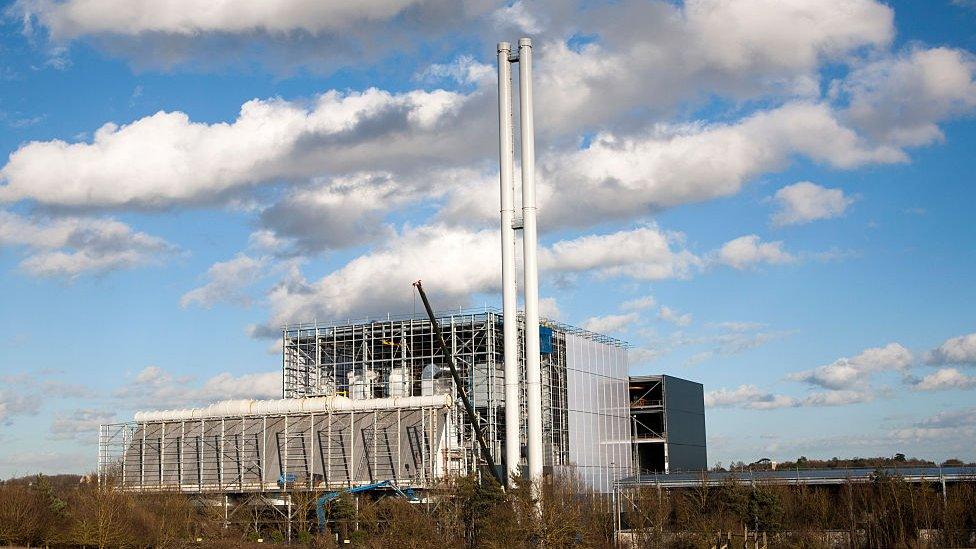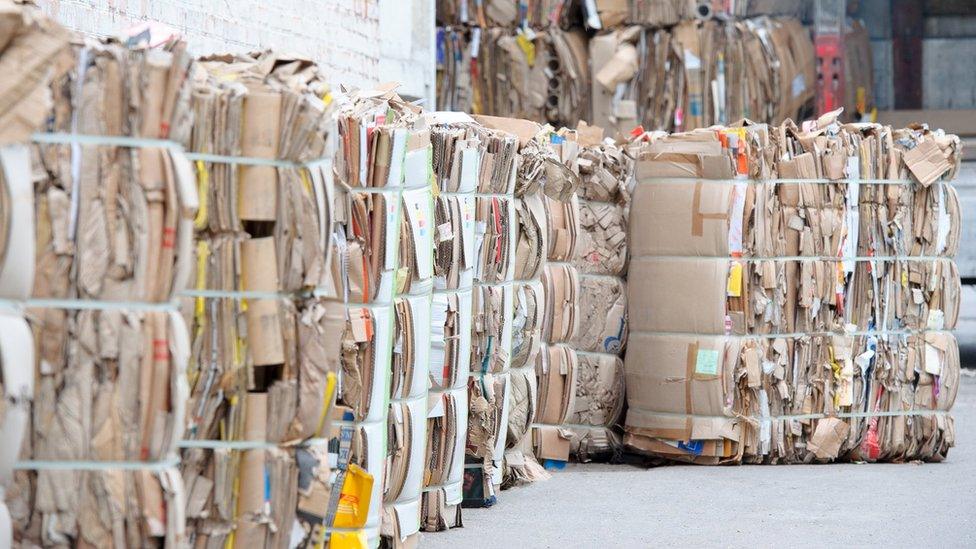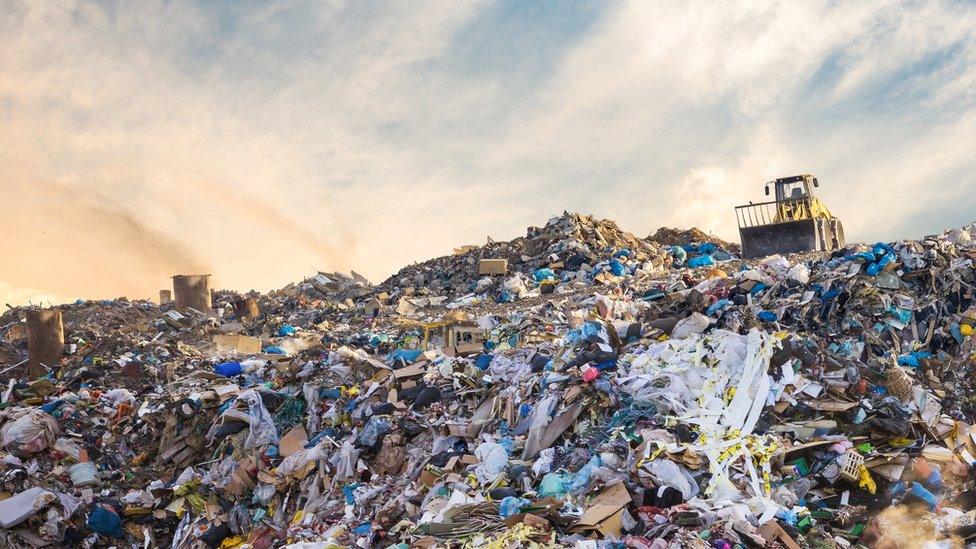Landfill ban by 2021 'unlikely' warn Scotland's councils
- Published
- comments

More energy-from-waste plants, similar to this one in England, are being built across Scotland ahead of the planned 2021 landfill ban
A ban on household waste going to landfill by 2021 is "unlikely" to be achieved, Scotland's councils have warned.
The Scottish government wants to stop traditional black bag waste and a range of recyclable materials being buried in the ground.
This will be achieved by increasing recycling rates and building more energy-from-waste incinerators.
But reaching this goal is now in doubt, according to councils.
A report by local authority body Cosla states that "as it stands it seems unlikely that the 2021 ban will be fully achievable".

The amount of household waste sent to landfill has decreased for six consecutive years and it is hoped initiatives such as the deposit return scheme will boost this further
Scotland has made great strides in reducing the amount of waste it buries with household waste recycling levels now exceeding the amount sent to landfill.
Ministers say they are "aware of the challenges" of the ban but still want to go further as the 2021 ban would divert around one million tonnes of household waste from landfill every year.
The plan would see a string of materials banned from landfills including non-recyclable black bag municipal waste, wood, textiles, paper and food.
Councils across the country are building or planning energy-from-waste facilities but fears have been raised the waste may need to be exported to comply with the ban.
Scotland already exports around 1.6 million tonnes of rubbish every year to England and further afield.
'Struggle'
Malcolm Todd, a waste industry consultant and former managing director of Shore Recycling, said: "It is no surprise that councils think they will struggle to meet this target, they are just being totally honest about the enormity of the task ahead.
"We have made great gains in traditional recycling, that will continue but we have grabbed all the low hanging fruit as it were, and it will not increase at the rate needed to make this ban a reality.
"I am of the view that we need to increase the contribution that waste-to-energy plants can make to this situation but we have been too slow to grasp this opportunity so far.
"The alternative is we would need to increase exporting waste to England and elsewhere, and this must be avoided at all costs."
Diverting waste
In a report to its environment and economy board, Cosla says it is working with the Scottish government to establish a "realistic suite of options" to try and divert waste from landfill but added, "as it stands it seems unlikely that the 2021 ban will be fully achievable".
The council umbrella group declined an invitation to expand on the challenges facing it members from the 2021 ban, and what the possible solutions could be.
A Scottish government spokesman said: "The forthcoming ban on biodegradable municipal waste from landfill in Scotland remains an important part of our commitment to achieving a more circular economy.
"We are aware of the challenges associated with the introduction of the ban and are working with Scottish Environment Protection Agency, Zero Waste Scotland, councils and the private sector to prepare for it.
"We will publish a waste markets study shortly which, along with the close co-operation of stakeholders, will help us identify any further actions we may need to take to ensure that Scotland is ready to deliver the ban."

Analysis: The challenge facing councils
By Kevin Keane, Environment Correspondent
This move has not come as a surprise to councils, they have known the deadline since 2012, yet many are still not ready for the change which effectively means a ban on your black bags going to landfill.
The preferred alternatives are incineration or anaerobic digestion; quick and slow ways of generating electricity from the waste.
But those facilities are relatively few and far between in Scotland.
Much of the "capacity gap" will be temporary as sites such as the Altens energy-from-waste facility in Aberdeen are due for completion by 2021/22.
However, that still means that from the first day of 2021 up to one million tonnes of materials will have nowhere to go.

The Scottish government is sticking to its guns saying it will not be shifting the date so unprepared councils will have to act fast.
One option is a bigger push on recycling. Some authorities, like Aberdeenshire, are already planning to provide smaller bins with less frequent collections for general waste.
But with only around half of the domestic rubbish we generate being recycled, that's a big behavioural change in under two years.
The other serious possibility is sending the surplus waste to England for landfill but that's not a good look for the Scottish government.
In addition, transporting it by lorry could be costly, both financially and environmentally.
